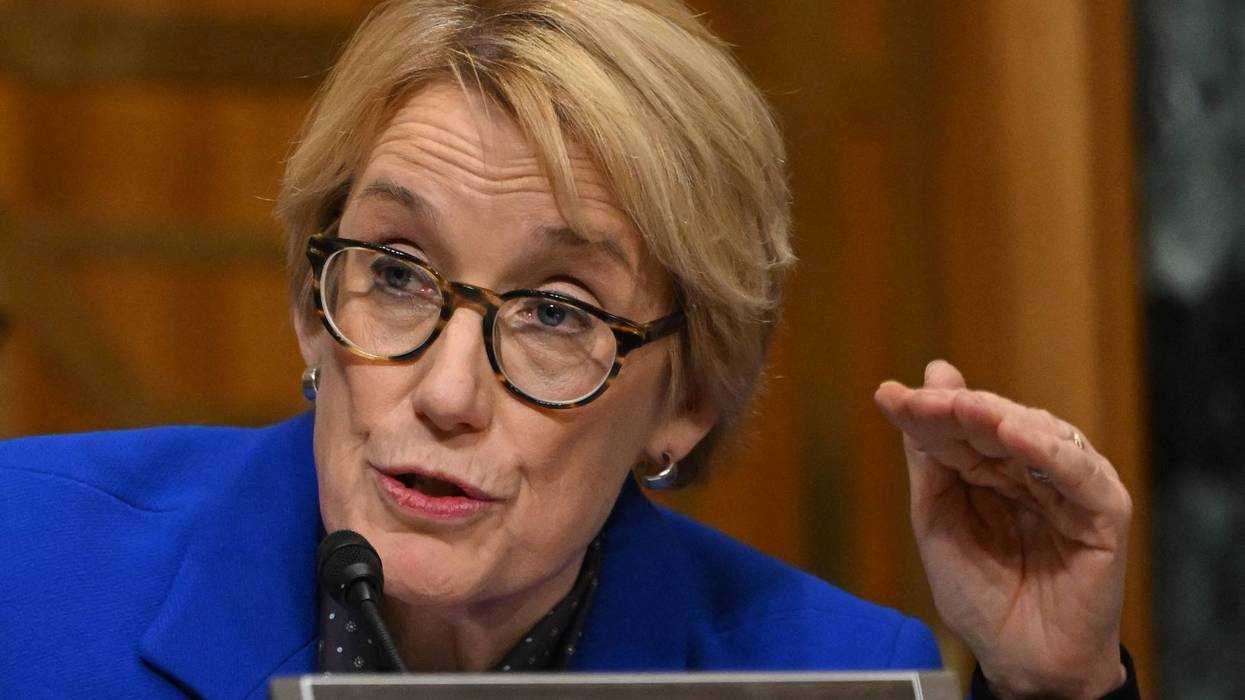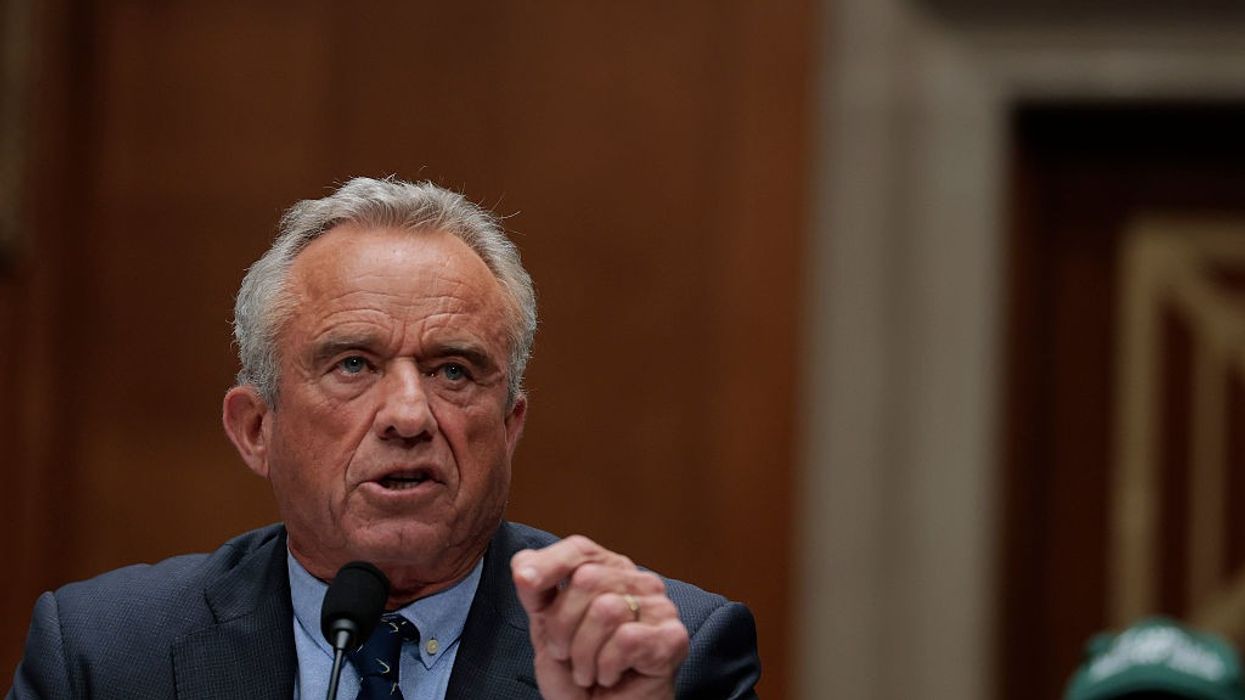December, 18 2017, 02:45pm EDT

For Immediate Release
Contact:
Gabby Brown, gabby.brown@sierraclub.org, 202-495-3051, Ayse Gursoz, ayse@ran.org, 650-391-6443
JPMorgan Chase and Wells Fargo Double Down on Support for Dirty Tar Sands Pipelines
San Francisco, CA
Despite mounting public opposition from a broad coalition of Indigenous and environmental groups, JPMorgan Chase and Wells Fargo renewed their participation in a set of loans totaling $1.5 billion to TransCanada, the company behind the Keystone XL tar sands pipeline.
The banks have faced significant pressure in recent months to divest from the controversial pipeline, which would transport dirty, climate-polluting tar sands through the Midwest to the Gulf Coast for export, threatening Indigenous rights, land, water, and communities along the way.
Sierra Club Beyond Dirty Fuels Campaign Director Kelly Martin said: "Wells Fargo's PR team loves to tout the bank's commitment to responsible investing and transitioning to clean energy, but today's decision makes it clear that it's all talk. Keystone XL would be a disaster for our communities and our climate, and any bank that's helping fund this terrible project and others like it is on the wrong side of history. The growing movement working to hold banks like Wells Fargo accountable for their reckless investments is not going anywhere. It will only grow louder and stronger until our financial institutions commit to investing in a future that benefits our communities, our economies, our health, and our planet."
Rainforest Action Network Senior Climate and Energy Campaigner Ruth Breech said: "Wall Street is failing the climate test and violating the free, prior and informed consent of Indigenous people. JPMorgan Chase and Wells Fargo had an opportunity to cut ties with TransCanada and the KXL pipeline and they chose to walk on the wrong side of history. This goes to show that JPMorgan Chase and Wells Fargo could care less about devastating the lives of real people caused by the environmental destruction and climate disaster wrought by tar sands."
Indigenous Environmental Network campaigner, Dallas Goldtooth, said: "This is deplorable. JP Morgan Chase and Wells Fargo have chosen to double down on the plunder of Indigenous lands, to condone violence perpetrated against peaceful water protectors and to further the trampling of Indigenous rights to Free, Prior and Informed Consent. Furthermore, Wells Fargo just announced $50 million worth in grants to Native Americans while dumping billions into tar sands oil development, diminishing the lives of Native Americans at the source. The irony and contradictions cannot and will not go unnoticed. We must stop tar sands and keep fossil fuels in the ground!"
Greenpeace USA Senior Climate and Energy Campaigner Diana Best said: "Greenpeace is deeply disappointed that JPMorgan Chase and other banks continue to fund companies trying to build dirty tar sands pipelines -- projects that jeopardize human rights, drinking water, and our climate. These banks are on the wrong side of history. Hundreds of thousands of people are stepping up to oppose these pipelines and the financial lenders bankrolling these projects. Other banks have announced moves to step away from tar sands this year, yet JPMorgan Chase and Wells Fargo continue to fall behind the curve."
Northern Plains Resource Council, former Chair and farmer, Dena Hoff said: "This is about protecting water -- when you think about how critical water is to Montana's economy, you have to ask why banks are supporting projects as dirty as the Keystone XL pipeline. Over the long haul, it just doesn't make good sense. Keystone XL would go under the Yellowstone River about 13 miles upstream from my farm. I've already dealt with one major oil spill in the river near my property, and I never want to see that again. I want my children and my grandchildren and their children to keep coming to this farm. But without clean water, our farm couldn't operate. Without clean water we have nothing."
The Sierra Club is the most enduring and influential grassroots environmental organization in the United States. We amplify the power of our 3.8 million members and supporters to defend everyone's right to a healthy world.
(415) 977-5500LATEST NEWS
Congress Finds 4 Data Breaches Cost Public $20 Billion, Fueling Calls for Action to 'Protect Americans From Scams'
"As international criminal syndicates increasingly use scams to target Americans, data brokers shouldn’t make it harder for people to protect themselves," said the Joint Economic Committee's ranking member.
Feb 27, 2026
Just four major data broker breaches in recent years have cost US consumers over $20 billion, according to a Thursday report from a key leader in Congress that argues "additional action is needed to protect Americans from scams."
Sen. Maggie Hassan (D-NH), ranking member of the congressional Joint Economic Committee (JEC), launched a sweeping investigation into financial scams last July. As part of it, she's examined data brokers, which collect and sell individuals' personal information. These companies often operate with limited transparency, her report explains, making it "more difficult for individuals to secure their information online and, ultimately, protect themselves from the growing threat of scams."
"Data brokers, for example, can enable scams by making consumers' personal information available to bad actors, who can then use details like Social Security numbers, home addresses, or banking information to develop customized and convincing scams," the report explains. "In some cases, data brokers have allegedly sold this information directly to scammers; in others, cyber hacks of data brokers have exposed individuals' data to uncontrolled circulation online."
Last August, after Wired reported that some data brokers took steps to hide their opt-out pages, Hassan issued investigative requests to Comscore, Findem, IQVIA Digital, Telesign, and 6Sense Insights. The report states that all of the companies but Findem responded with "actions to make their opt-out options more accessible to consumers and other parties," which "included removing 'no index' code that had blocked opt-out pages from search engine results, adding opt-out links in more prominent locations, and publishing blog content explaining how people can exercise their privacy rights."
"Notably," the report continues, "Findem did not respond to the ranking member's requests or written outreach from committee staff and has not removed the 'no index' code from its opt-out page—raising serious concerns about its responsiveness to opt-out requests and commitment to data privacy."
While recognizing the other companies for their positive responses, Hassan's report also stresses that more must be done. For instance, she requested information about efforts "to audit or assess the visibility of opt-out options or the success rates of opt-out requests," and "only 6sense stated that it contracts with third-party auditors to conduct both of these assessments."
Highlighting the need for further action, Hassan's staff estimated that identity theft stemming from four large data broker breaches—Equifax in 2017, impacting 147 million US residents; Exactis in 2018, impacting 230 million; National Public in 2023, impacting 270 million; and TransUnion in 2025, impacting 4.4 million—cost American consumers $20.9 billion.
"As international criminal syndicates increasingly use scams to target Americans, data brokers shouldn't make it harder for people to protect themselves," Hassan said in a statement. "This report shows the scope of the threat that people face from data broker breaches and underscores the importance of protecting Americans' private data."
She added that "it is encouraging that after we launched our investigation, many companies took steps to improve opt-out options for Americans, which in turn can help more consumers keep their information out of the wrong hands."
As a related webpage from the Electronic Privacy Information Center details: "There is no federal law in the United States that adequately regulates the data broker industry. As a result, private companies invade our private lives, spy on our families, and gather our most intimate facts, on a mass scale, for profit. EPIC supports state and federal legislative efforts that set limits on data brokers’ collection, use, retention, and disclosure of personal data."
In recent years, members of Congress have introduced various legislative proposals aimed at reining in data brokers—including in the Security and Freedom Enhancement (SAFE) Act, introduced on Monday. The bipartisan bill would, among other things, close the so-called "data broker loophole" that, as Sens. Dick Durbin (D-Ill.) and Mike Lee (R-Utah) put it, "intelligence and law enforcement agencies use to buy their way around the Fourth Amendment" to the US Constitution.
There are some limits that have passed, including in Protecting Americans’ Data from Foreign Adversaries Act of 2024. Earlier this month, the Federal Trade Commission sent letters reminding 13 companies of their obligations to comply with the PADFAA, which "prohibits data brokers from selling, licensing, renting, trading, transferring, releasing, disclosing, providing access to, or otherwise making available personally identifiable sensitive data of a United States individual to any foreign adversary country or any entity that is controlled by a foreign adversary."
However, as Lartease Tiffith, an expert at American and George Mason universities, laid out in an article for Just Security last November, while Congress enacted the PADFAA "with the right goal," the law, as written, "could penalize legitimate US companies for routine global operations while failing to deliver the targeted national security tool Congress intended."
Keep ReadingShow Less
Family of UN Palestine Expert Francesca Albanese Sues Trump Over Sanctions
"At its heart, this case concerns whether defendants can sanction a person, ruining their life and the lives of their loved ones... because defendants disagree with their recommendations," the lawsuit states.
Feb 27, 2026
Relatives of independent United Nations investigator Francesca Albanese this week sued US President Donald Trump and three of his senior Cabinet officials over sanctions imposed for her efforts to hold Israeli leaders and international corporations profiting from the Gaza genocide accountable.
Albanese, the UN special rapporteur on the occupied Palestinian territories was sanctioned last July for what Secretary of State Marco Rubio called “her illegitimate and shameful efforts to prompt International Criminal Court (ICC) action against US and Israeli officials, companies, and executives.”
UN rules prohibit Albanese from suing under her own name, so her husband—World Bank official Massimiliano Cali—and their unnamed child filed a lawsuit in the US District Court for the District of Columbia on Wednesday.
“It is a shared interest for all who believe in international law, accountability, and the world governed by rules and not by force or by bullying,” Albanese, 48, said Thursday at a news conference hosted by the Office of the UN High Commissioner for Human Rights.
The lawsuit—which names Trump, Rubio, Treasury Secretary Scott Bessent, and Attorney General Pam Bondi as defendants—details how US sanctions have severely impacted the plaintiffs' lives, including loss of access to banking, the ability to travel to the United States, their home in Washington, DC, Cali's workplace, and professional ties to universities.
“Francesca’s expression of her views about the facts as she has found them in the Israeli-Palestinian conflict and about the work of the ICC is core First Amendment activity,” the lawsuit states. “At its heart, this case concerns whether defendants can sanction a person—ruining their life and the lives of their loved ones, including their citizen daughter—because defendants disagree with their recommendations or fear their persuasiveness."
“Sanctions, used appropriately, are a powerful tool to disrupt and undermine the activities of terrorists, criminals, and authoritarian regimes,” the suit asserts. “Sanctions are abused, however, when they seek to silence disfavored points of view and to violate the constitutional rights of people the government does not like.”
Speaking to the New York Times Thursday, Albanese said that "I have experienced enormous hardship."
“There is a criminalization of my motherhood and the family bonds I have," she added, noting that her relatives fear committing a felony if they help a sanctioned person.
The State Department responded by calling the lawsuit “baseless lawfare” and claimed that the sanctions against Albanese are “legal and appropriate.”
“Francesca Albanese has openly supported antisemitism, terrorism, and has engaged in lawfare against our nation and our interests, including against major American companies vital to the world economy," the department added.
Albanese has never supported antisemitism or terrorism. Last year, she published a report, From Economy of Occupation to Economy of Genocide, in which she named and shamed dozens of international companies that are aiding and abetting Israel's genocide in Gaza.
Since her appointment nearly four years ago, Albanese has been a vocal advocate for Palestinian rights and a fierce critic of Israel's policies and practices, including invasion, occupation, colonization, apartheid, and ethnic cleansing.
Albanese accuses Israel of violating the Genocide Convention, as does South Africa, which is leading a case against Israel based on the landmark treaty—that Israel signed and ratified—at the International Court of Justice.
Last September, a panel of independent UN human rights experts—which did not include Albanese—found that Israel is committing genocide in Gaza, a conclusion shared by many scholars, jurists, world leaders, and rights groups.
More than 250,000 Palestinians, the vast majority of them civilians, have been killed or wounded in Gaza over the past 28 months, including thousands who are still missing. Two million people—the overwhelming majority of the strip's population—have been forcibly displaced, starved, or sickened. Gaza lies in utter ruins.
Albanese also supports prosecuting Israeli Prime Minister Benjamin Netanyahu and former Defense Minister Yoav Gallant—who ordered the "complete siege" of Gaza that fueled a famine—for crimes against humanity and war crimes, as alleged in arrest warrants issued by the ICC in November 2024.
In an interview with the Associated Press shortly after she was sanctioned, Albanese said: “My daughter is American. I’ve been living in the US and I have some assets there. So of course, it’s going to harm me. What can I do? I did everything I did in good faith, and knowing that, my commitment to justice is more important than personal interests.”
While US complicity in Israel's genocidal assault on Gaza predates Trump's return to office, he has waged a broad attack on critics of his administration's foreign policy, including nearly unconditional support for Israel. Last year, he issued an executive order authorizing sanctions against anyone who helps the ICC investigate or prosecute Americans or US allies.
Albanese has been also targeted by several European nations. Earlier this month, the foreign ministers of Austria, the Czech Republic, France, and Germany have publicly called for Albanese’s resignation or termination after the pro-Israel group UN Watch—which is unaffiliated with the world body—circulated an deceptively edited video of her purportedly calling Israel “the common enemy of humanity."
“European governments accuse me—based on statements I never made—with a virulence and conviction that they have NEVER used against those who have slaughtered 20,000+ children," Albanese said in response.
Keep ReadingShow Less
'One Year of Failure': The Lancet Warns RFK Jr.'s Assault on Science May 'Take Generations to Repair'
Kennedy has "made a habit of throwing good money after bad" by promoting "junk science and fringe beliefs."
Feb 27, 2026
A scathing editorial published Friday in one of the world's most prestigious medical journals took US Health and Human Services Secretary Robert F. Kennedy Jr. to task for what it described as "one year of failure."
In its editorial, the Lancet began by listing off several of the broken promises Kennedy made during his first speech after being confirmed to lead the US Health and Human Services Department (HHS), such as his vow to have "open and honest engagement with everyone willing to work towards making the USA healthy again" and usher in "a new era of unbiased science without hidden conflicts of interest, secrecy, or profiteering."
In fact, the Lancet found that it took Kennedy less than two weeks to break a key promise.
"Ten days after his speech about trust and openness," the journal noted, "HHS rescinded a 54-year-old policy of soliciting public comments for new rules and regulations, silencing the voices of many of the stakeholders he pledged to serve."
Things have only gotten worse since then, the editorial continued, as Kennedy has shelved research into mRNA vaccines and "made a habit of throwing good money after bad" by promoting "junk science and fringe beliefs."
The editorial concluded by warning "the destruction that Kennedy has wrought in one year might take generations to repair, and there is little hope for US health and science while he remains at the helm." The journal urged the US Congress to "hold Kennedy accountable for his record, or else accept responsibility for endorsing President Trump's decision to let him 'run wild on health.'"
The Lancet editorial drew a range of reactions from medical experts and academics.
Scott Forbes, an ecologist at the University of Winnipeg, explained the significance of a journal such as the Lancet publishing such an overtly political editorial.
"For context, the Lancet is one of the two most important medical journals on the planet," he wrote in a social media post. "When they put this on their front cover, it is only because there is something seriously wrong. That something is RFK Jr. He is a notorious crank and charlatan. But that's par for the course in the Trump regime."
Forbes' point was echoed by Krutika Kuppalli, associate professor at UT Southwestern Medical Center's Department of Internal Medicine.
"When a leading medical journal uses language like this, it’s not rhetoric," she wrote. "It’s a warning the world should take seriously."
Pediatrician Vincent Iannelli took the Lancet to task for publishing a since-retracted study in 1998 that falsely linked vaccination with the development of autism, which subsequently helped the anti-vaccination movement gain currency.
"Let's not forget that Wakefield's fraudulent paper that was published in the Lancet helped get us on this road," Iannelli said. "RFK Jr. was influenced by mothers who blamed vaccines for their child's autism."
Keep ReadingShow Less
Most Popular


